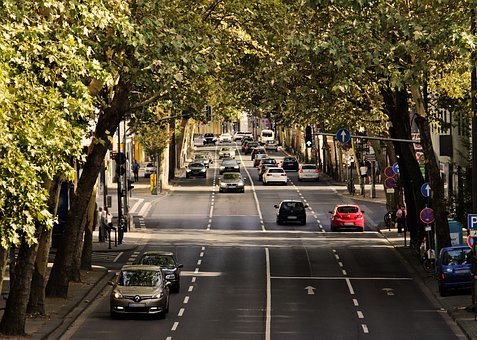Dailycsr.com – 31 December 2018 – When the picture of a city bus or a waste management van crosses our mind, we don’t see any “high-tech, mobile urban sensing platform” yet. However, Aileen Nowlan informs that Houston is seeing one such initiative which turns “public fleets into the rolling eyes and ears of the city” enabling them to introduce a revolutionary measure of air pollution monitoring.
These future fleets are IoT compatible and plays a major role in the transition into “fully connected, smarter cities”, wherein the safety of such places are enhanced with “hyperlocal data” to promote “urban efficiency, decarbonized electricity, and clean transportation”. Nowlan urged:
“Picture using connected, clean fleets to improve delivery times, bring residents to work, school and doctor’s appointments, and even pinpoint the location of toxic air pollution threats – all at the same time”.
With the help of these vehicles forecasting air pollutions one can remove the experience of “hundreds of thousands of heart attacks, tens of thousands of hospital and ER visits”, whereby cutting down on absentees in schools as well as work places. Annually, the global economy pays with an amount of “$225 billion dollars” for air pollution in the form of “lost labor income”. However, new studies indicate the situation can be salvaged by improving outdoor as well as indoor air quality”.
Furthermore, Nowlan added:
“A new report reveals that by combining mobile air quality sensors with connected vehicle technologies – think Dash, OnStar, and in this case Geotab, which co-authored the report with Environmental Defense Fund (EDF) – city vehicles in particular could measure air pollution at an unprecedented scale. The report explains that just 10 to 20 vehicles could, without changing their regular routes, map 50 to 70 percent of a city”.
Like many city dwellers across the globe, people of Houston are “concerned about air pollution and the associated health effects”. The progress of improving air quality has seemed to come to a standstill, while there are miles to go before bringing the air quality level of the city under the “federal government’s health-based standards”. And Nowlan thinks:
“But if we can solve the air pollution problem in Houston, we can solve it anywhere. I’m encouraged that Houston’s leadership is taking action: Mayor Sylvester Turner is the co-chair of Climate Mayors, a group of leaders supporting the goals of the Paris Agreement, and Houston is working to decarbonize its own fleet”.
At present, Houston is attempting to launch “future fleets” all over the city. These vehicles are going carry “low-maintenance air pollution monitoring systems” on top of them which are going to be “self-powered” besides being capable of handling “wind, heat and rain”. Among the other features of these systems there will also be “tailored Aethlabs black carbon sensors and particulate sensors, which are matched with telematics technologies that offer location, speed, and other data”.
Telematics can help in aggregating data anonymously from multiple fleets and using the collected information, one can create “maps that pinpoint the exact locations of pollution hotspots”. On concluding notes, Nowlan added:
“I welcome your collaboration in creating new sensing platforms, new ways to integrate data, and new ways to make decisions that turn data into action. This innovation would help cities and companies around the world protect health and the climate, and walk the walk on your sustainability commitments”.
References:
3blmedia.com
These future fleets are IoT compatible and plays a major role in the transition into “fully connected, smarter cities”, wherein the safety of such places are enhanced with “hyperlocal data” to promote “urban efficiency, decarbonized electricity, and clean transportation”. Nowlan urged:
“Picture using connected, clean fleets to improve delivery times, bring residents to work, school and doctor’s appointments, and even pinpoint the location of toxic air pollution threats – all at the same time”.
With the help of these vehicles forecasting air pollutions one can remove the experience of “hundreds of thousands of heart attacks, tens of thousands of hospital and ER visits”, whereby cutting down on absentees in schools as well as work places. Annually, the global economy pays with an amount of “$225 billion dollars” for air pollution in the form of “lost labor income”. However, new studies indicate the situation can be salvaged by improving outdoor as well as indoor air quality”.
Furthermore, Nowlan added:
“A new report reveals that by combining mobile air quality sensors with connected vehicle technologies – think Dash, OnStar, and in this case Geotab, which co-authored the report with Environmental Defense Fund (EDF) – city vehicles in particular could measure air pollution at an unprecedented scale. The report explains that just 10 to 20 vehicles could, without changing their regular routes, map 50 to 70 percent of a city”.
Like many city dwellers across the globe, people of Houston are “concerned about air pollution and the associated health effects”. The progress of improving air quality has seemed to come to a standstill, while there are miles to go before bringing the air quality level of the city under the “federal government’s health-based standards”. And Nowlan thinks:
“But if we can solve the air pollution problem in Houston, we can solve it anywhere. I’m encouraged that Houston’s leadership is taking action: Mayor Sylvester Turner is the co-chair of Climate Mayors, a group of leaders supporting the goals of the Paris Agreement, and Houston is working to decarbonize its own fleet”.
At present, Houston is attempting to launch “future fleets” all over the city. These vehicles are going carry “low-maintenance air pollution monitoring systems” on top of them which are going to be “self-powered” besides being capable of handling “wind, heat and rain”. Among the other features of these systems there will also be “tailored Aethlabs black carbon sensors and particulate sensors, which are matched with telematics technologies that offer location, speed, and other data”.
Telematics can help in aggregating data anonymously from multiple fleets and using the collected information, one can create “maps that pinpoint the exact locations of pollution hotspots”. On concluding notes, Nowlan added:
“I welcome your collaboration in creating new sensing platforms, new ways to integrate data, and new ways to make decisions that turn data into action. This innovation would help cities and companies around the world protect health and the climate, and walk the walk on your sustainability commitments”.
References:
3blmedia.com


 A Promise Of Mobile Pollution Tracking System
A Promise Of Mobile Pollution Tracking System





 Companies
Companies